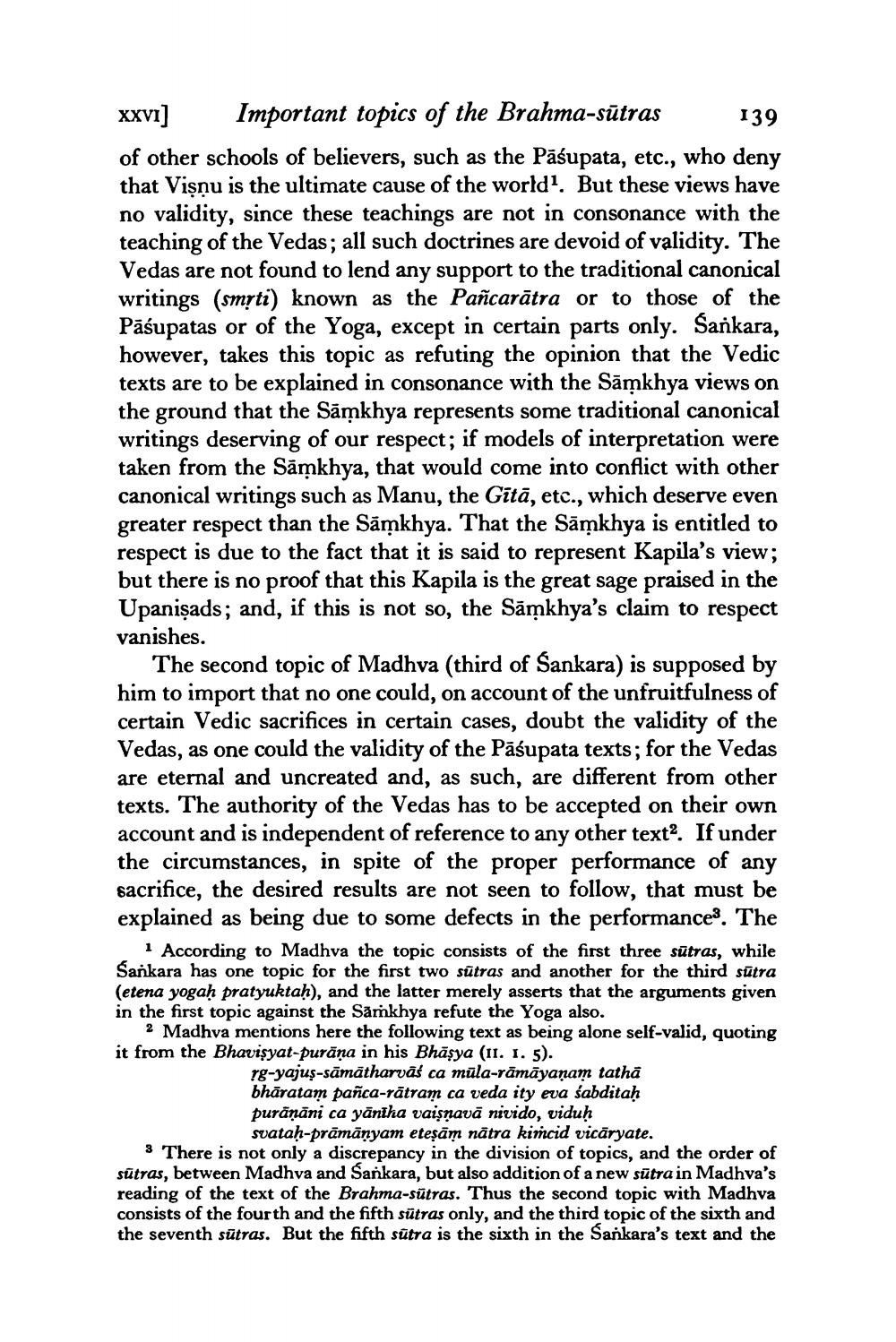________________
XXVI] Important topics of the Brahma-sūtras 139 of other schools of believers, such as the Pāśupata, etc., who deny that Vişnu is the ultimate cause of the world!. But these views have no validity, since these teachings are not in consonance with the teaching of the Vedas; all such doctrines are devoid of validity. The Vedas are not found to lend any support to the traditional canonical writings (smrti) known as the Pañcarātra or to those of the Pāśupatas or of the Yoga, except in certain parts only. Sankara, however, takes this topic as refuting the opinion that the Vedic texts are to be explained in consonance with the Sāmkhya views on the ground that the Sāmkhya represents some traditional canonical writings deserving of our respect; if models of interpretation were taken from the Samkhya, that would come into conflict with other canonical writings such as Manu, the Gītā, etc., which deserve even greater respect than the Samkhya. That the Sāmkhya is entitled to respect is due to the fact that it is said to represent Kapila's view; but there is no proof that this Kapila is the great sage praised in the Upanisads; and, if this is not so, the Samkhya's claim to respect vanishes.
The second topic of Madhva (third of Sankara) is supposed by him to import that no one could, on account of the unfruitfulness of certain Vedic sacrifices in certain cases, doubt the validity of the Vedas, as one could the validity of the Pāśupata texts; for the Vedas are eternal and uncreated and, as such, are different from other texts. The authority of the Vedas has to be accepted on their own account and is independent of reference to any other text?. If under the circumstances, in spite of the proper performance of any sacrifice, the desired results are not seen to follow, that must be explained as being due to some defects in the performance. The
1 According to Madhva the topic consists of the first three sūtras, while Sankara has one topic for the first two sūtras and another for the third sutra (etena yogaḥ pratyuktaḥ), and the latter merely asserts that the arguments given in the first topic against the Samkhya refute the Yoga also.
2 Madhva mentions here the following text as being alone self-valid, quoting it from the Bhavisyat-purāna in his Bhāşya (11. 1. 5).
rg-yajuş-sāmātharvās ca mula-rāmāyaṇam tathā bhāratam pañca-rätram ca veda ity eva sabditaḥ purāņāni ca yāniha vaişnavā nivido, viduh
svatah-prāmānyam eteşām nātra kimcid vicāryate. 3 There is not only a discrepancy in the division of topics, and the order of sūtras, between Madhva and Sankara, but also addition of a new sūtra in Madhva's reading of the text of the Brahma-sūtras. Thus the second topic with Madhva consists of the fourth and the fifth sūtras only, and the third topic of the sixth and the seventh sūtras. But the fifth sūtra is the sixth in the Sankara's text and the




